- Home
- Thomas E. Sniegoski
The Satan Factory Page 5
The Satan Factory Read online
Page 5
Wanting to see more, he crawled closer, rock still in hand, and hit her again and again.
He hit her until her fear was gone.
And it belonged only to him.
Transformed by the moment, he quickly scrambled to the shed door and pulled it closed, returning to his punishment. Returning to his schooling.
Later that day, when the blazing summer sun had finally begun to set, his father had come out to set him free.
Fazzina still could feel that same thrill of excitement. He remembered the shed door swinging open, and the look upon his father’s face as he saw him lying there, curled within the embrace of the maid’s corpse.
He remembered the fear in his father’s eyes.
Fazzina reached for his wine glass, and as he brought it to his lips, realized that it was empty. With an animal-like growl he flung the glass across the room where it shattered against the fireplace.
He was furious that his glass was empty, and even more enraged by the memory of why he had been forced from his bed.
Fazzina had received a call. A man who had betrayed him, and had fled his wrath, had actually returned to the city.
Dr. Jonas Chapel had come home, and the Devil wanted to welcome him back.
—
They wanted to kill him.
Chapel could feel the murderous intent coming off of them in waves as they hauled him from the back of their car, roughly shoving him toward the back entrance to the Fazzina estate.
He had helped himself to the contents of the wallets of the men who had been sent to kill him in Mexico as well as their vehicle. He had loaded up their ride with his skeletal prize and what little belongings he had, headed back over the border, and then straight to New York. He had briefly entertained the idea of disappearing again, but the promise of something larger . . . of something far more profitable, urged him on.
Finally returning to the city, he’d gone straight to one of Fazzina’s speakeasies. It was only a matter of time before they had noticed him, and he’d made his demands.
They’d found his request quite humorous at first, and after a quick phone call, they’d dragged him out to a car, and he was on his way to see the Devil.
As they escorted Chapel through the house, each thug held an arm in a steely grip. He wanted to tell them that they could let go, that he was exactly where he wanted to be, but he doubted they would have listened.
At a closed mahogany door, they stopped, knocked, and waited to be summoned inside.
“Come in,” a rough voice finally called from behind the door.
The men did as they were told, opening the door and practically throwing Chapel inside.
The study was as beautiful as the doctor remembered, and he was again reminded of what he’d once had, and lost.
Wearing a gold-and-red smoking jacket, Fazzina was standing before a large picture window that looked out onto his property, enshrouded in velvety night. The large, dark-haired man was smoking a cigar and did not even bother to turn around.
Chapel decided to make his case anyway.
“First off, let me apologize for my ineptitude in the care of your injured men,” he began, moving toward the crime boss, and stopping as the big man turned from the window.
“Your ineptitude?” Fazzina declared with a growl. “You’re talking to me about your ineptitude?”
“Yes, yes, I am, and . . .”
“Your ineptitude resulted in my brother’s son being put in the ground before his twenty-fifth birthday.”
“And I’m sorry about that, sir,” Chapel said, lowering his gaze from the man.
“Never mind the other guy, who drools like a baby, and walks with a limp.”
Fazzina puffed upon the cigar, the tip burning an angry red.
“I take full responsibility for my actions,” Chapel said, still averting his eyes. It wasn’t good to look into an angry animal’s eyes; it showed aggression.
“That’s good,” Fazzina said, clutching the cigar between his teeth. “ ’Cause I take full responsibility for the pain you’re about to go through.”
He peeled off the smoking jacket, tossed it to the floor of the study, and undid the buttons on the cuffs of his shirt before rolling up his sleeves.
“I sent two of my best guys down south of the border to look for you,” the crime boss said.
Chapel nodded, fighting back an amused smile as he recalled their fate. “I know.”
“You shoulda let them catch you,” Fazzina said, coming at him, swinging.
A meaty fist connected with the side of Chapel’s face, driving him to the floor. The pain was incredible, but he decided he would let Fazzina satisfy his rage for a bit, take his punishment so to speak. After all, he had killed the man’s nephew, even if it was an accident.
“What they woulda done to you is nothin’ compared to what I got planned,” Fazzina growled, as he pulled back his fist for another strike.
“I came back for a reason,” Chapel managed to get out, just before the fist fell again, and he was driven back to the floor.
“And what reason is that, pray tell?” the ape of a man asked. “You wanted to show me that you’re not afraid to die?”
Chapel had to fight to remain conscious. His legs flopped around on the floor as if he was trying to run in place.
“Get ’im up,” Fazzina ordered his goons, and Chapel felt their rough hands upon him as they hauled him to his feet.
They held him up, as his head flopped from side to side. The coppery taste of blood was strong in his mouth, and he was pretty sure that at least two of his teeth were loose.
“Please, wait,” he stammered, bloody saliva dripping from his mouth and down his chin.
“You beggin’ now?” Fazzina asked with a cruel chuckle. “That’s nice . . . useless, but nice.”
Fazzina had pulled back his fist again when he made his plea.
“I can make you a king,” Chapel screamed.
Fazzina stopped midpunch and started to laugh.
“What did you say to me?” he asked, his men starting to laugh along. “You’re going to make me a king? Is that what you said?”
Chapel nodded. “I can help you get rid of the competition,” the doctor said. “Nobody would be able to stand up to what I can give you.”
Fazzina considered his words, plucking the burning cigar from his mouth and tapping the expanding ash onto the Oriental rug.
“You’re as crazy as a loon,” he said, sticking the cigar back into his mouth and coming at him, fist raised.
Chapel filled his lungs and screamed out the name.
“Paco!”
He hoped that the boy had been able to follow, as Chapel had ordered, but something told him that since his transformation, Paco would have no trouble at all. The mutated child was completely obedient to Chapel, eagerly awaiting his every command.
“Paco?” Fazzina repeated, punching him in the stomach. Chapel felt his internal organs turn to jelly as the blow landed.
Where is the damned kid? he wondered, just before he heard the impressive picture windows in the study shatter.
Through pain-hazed eyes, Chapel saw his protector.
“What the hell?” Fazzina roared.
Paco crouched just inside the room, shards of glass at his bare feet catching the light of the full moon. The boy growled, baring yellow, razor-sharp teeth in a show of aggression.
Fazzina’s goons dropped Chapel and he fell limply to his knees.
They drew their weapons and began to fire, but Paco moved like a shadow, darting from the path of the gunfire, and bounding toward his attackers. A horrible growl rumbled from the boy as he sprang at the bad men.
Chapel watched in fascination the acts of violence the beast child now performed upon the two gunmen. Even in the short time that he’d spent away from the child, Chapel could see that more mutation had occurred. The boy appeared more deformed—more inhuman.
The men barely had time to scream as the boy pounced, ripping them
to pieces.
Carefully the doctor climbed to his feet, every inch of his body throbbing from the beating he had just taken. He looked around for Fazzina and found him running toward the study door. Even someone as tough as this crime boss knew when he was up against something he could not hope to understand.
The boss’s hands fumbled with the doorknob. Frantically, he looked over his shoulder to see Paco scrambling across the floor toward him, his misshapen body covered in the blood of his prey.
Fazzina let out a scream, his fear making his hands useless. And then Paco was upon him, rearing back upon thick, muscular legs to pounce on the man’s back.
“Paco, no!” Chapel cried out.
The beast child turned to look at him, a question in his animal gaze.
The doctor snapped his fingers and pointed to his side. Paco obliged, crawling on all fours to squat beside Chapel.
Fazzina had turned from the door, staring with widening eyes at what he had just seen.
“I told you I came back for a reason,” Chapel said. He reached his fingers up to his mouth and fished around. A tooth came away from the gums and he removed it, dropping it on the floor where Paco promptly picked it up and ate it.
“You . . . you and that thing stay away from me,” the crime boss commanded. There was a tremor in his voice that hadn’t been there before.
“I told you that I could make you a king,” Chapel said. “And I will, if you give me what I want.” He reached down, scratching Paco’s shaggy head as if the child was a faithful dog. The boy continued to chew noisily on Chapel’s discarded tooth.
“How?” Fazzina asked, no longer trying to escape, his back pressed to the door. “How could you do this . . . how could you make me a king?”
Chapel smiled, turning his gaze down to the bestial child crouched at his side. “It’s quite simple, really,” he said.
He looked back to Fazzina.
“What do you think an army of creatures like this would be capable of?”
Fazzina just stared, but Chapel believed he’d seen a spark of understanding in the Devil’s eyes.
“Now,” the doctor said pleasantly. “How about we share a drink, and talk about the future.”
—
It was like stepping through a doorway into the past.
Jake Hurley stood in front of the house where he’d lived with his wife and baby daughter, telling himself over and over again that this wasn’t his home anymore. Now he lived in a one-room fleabag in Chelsea with a shared toilet at the end of the hall. But home existed for Hurley now only as a concept. He desperately hoped that one day he would find another place to call home, but that single room in Chelsea wasn’t it.
He remembered the pain of having to explain himself to his wife, proclaiming his innocence even as police officers removed a shopping bag of money—kickback money supposedly paid to him by local businesses that he’d shaken down for protection—from a hiding place in an upstairs closet.
He remembered the disappointment he saw in her beautiful brown eyes as she watched the officers come down the stairs with their evidence.
It was like a bullet to his heart.
They had been all too efficient in bringing him down; the planting of evidence, most likely when his wife and daughter took their daily walk to the park, getting the owners of the shops on his beat to testify that they were afraid of what would happen to their businesses if he wasn’t paid his weekly fee.
They had him dead to rights, and no matter how loudly he professed his innocence, all the jury heard were the cries of a guilty man. He was sent away for eight years, and got out after four for good behavior, but it didn’t really matter. Everything in the outside world, everything he’d worked so hard to build and nurture, was gone.
Hurley had returned to the neighborhood where he and his wife had planned on setting down roots after his release from prison. He’d stood before the little empty house and stared at the For Sale sign staked into the ground. They were gone. His wife and daughter had fled, leaving a house to be repossessed by the bank and no forwarding address.
They had taken everything from him. They had even managed to steal away his justice.
How dare they? Hurley remembered saying to himself. He had become filled with rage as he stood before the small frame house on Kingsbridge Road, the home that he had once shared with his wife and daughter, and any hope that he’d managed to keep alive bled away.
That was when he had truly died, replaced by the shambling thing that had haunted the streets of the city.
Hurley had no idea why he had come back to his old Bronx neighborhood, perhaps the small hope that the Lobster had managed to reignite within him, the idea that something like this could very well be his again. It wasn’t too late after all.
He could be fully alive again.
He was ready to leave, turning to begin his journey back to Manhattan, when he saw a child pedal down the driveway on a shiny red tricycle. She was heading toward the street and he could not help himself. Hurley crossed over quickly, holding out his hand, and looking both ways just to be sure a car wasn’t on the way.
“You should be careful,” he said to the child, who couldn’t have been any older than six. For a moment, he was reminded of his own baby girl, all grown up, and entertained the notion that this could be her.
“This is my new bike,” she told him with a smile missing its two front teeth.
“It’s very nice,” he told her.
“It’s not really new,” she then confided in him. “It used to belong to my brother when he was little, but now it’s mine.”
“Well, it’s a real beauty.”
“Momma says that I shouldn’t talk to strangers,” she continued.
“And your momma’s right, that’s a very good idea,” Hurley said and turned to leave. “You take care of yourself now, and that bike.”
“You’re nice,” she said behind him. “Are you a daddy?”
Hurley felt a hurt in his heart, a muscle he thought was shriveled and dead, incapable of feeling pain.
“I used to be,” he said without turning around. “But that was a long time ago.”
“Why aren’t you now?” she asked, head cocked inquisitively as she sat upon her bike.
“I lost them.” He turned back to face her. “And I don’t know where they are.”
“You should go find them,” she said matter-of-factly. “I bet they’re missing you awful bad.”
The child’s words were like an invigorating tonic. Suddenly he felt more alive than he had in years.
“You know, you might be right,” he told the child. “Maybe I should.”
The front door to his former home opened and a woman who wasn’t his wife stepped outside. She was wearing an apron, and was drying her hands on a dishtowel.
“Susan, who are you talking to?”
“A nice man, Momma,” Susan said. “He lost his family and I told him he should go find them.”
Sensing a potential problem, Hurley started to leave, giving the child a wave and nodding politely toward her mother.
“Excuse me,” he heard Susan’s mother call from the porch. “Can I help you with something?”
Hurley stopped in the middle of the road and turned. “I was just asking your daughter for directions,” he called out. “I thought I was lost, but not so much anymore.”
He thanked them both again with a wave, turning around on his way back to Manhattan.
Hurley knew exactly where he was going.
—
Things seem surprisingly upbeat in Hooverville today, Hurley thought as he made his way deeper into the shantytown built by those rendered homeless and jobless by the world’s currently poor economic conditions.
The homemade shacks, constructed from boxwood, cardboard, discarded metal, and anything else that could be used as protection from the elements, were located in the emptied Central Park Reservoir, north of Belvedere Castle. It was the perfect place for the settlement to spring u
p, the reservoir having been drained in preparation for something that was going to be called the Great Lawn.
But right now, it was simply called Hooverville after the country’s illustrious president.
While doing his time he’d heard how bad it had become out there, that after the stock market crashed in October of ’29, things had quickly gone to hell.
He’d never imagined the country could have fallen so far.
Making his way down the dirt path between the makeshift shacks, Hurley met the eyes of men, women, and children carrying on with their lives as best they could. He guessed that these poor souls could be called his family now; each and every one of them had lost something of grave importance. Many of the men were talking, gathered around burning barrels, warming their hands over the open flames as they spoke to one another in hushed whispers.
Something was most definitely up, and he found his natural curiosity on the rise as he approached a particular hovel constructed from pieces of wood, stone, and discarded sheets of tin.
“Lloyd?” Hurley called out, knocking on the frame of the doorway that was covered with a piece of a canvas tarp. “Anybody home?”
“Come on in, Jake, my boy!” a voice called from inside.
He ducked as he moved the tarp aside and stepped into the home of his friend.
“What do you say, Jakey?” Old Lloyd asked from where he sat on what passed as his bed. The old man was wrapped in a threadbare blanket, smoking the remains of a cigarette.
“How’s it going, old timer?” Jake asked, sitting down on a piece of cardboard to prevent the dampness of the dirt floor from seeping through his pants.
“Things are good, Jake,” the old man said, puffing on his smoke. He offered what was left of his cigarette to his friend.
“I’ll pass,” Jake said, waving it away.
“Suit yourself.” Lloyd continued to smoke until there was little left for him to hold onto.
“Why so upbeat?” Jake asked, reaching for a pan of something that looked like tar bubbling over a small fire, but which he knew was coffee. He found a tin cup and poured himself some of the thick black liquid.
Lloyd found his own cup and lifted it in a toast to his friend.
Hurley laughed as he took a sip, his face screwing up from the bitterness.

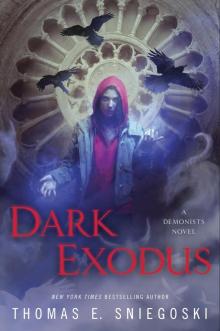 Dark Exodus
Dark Exodus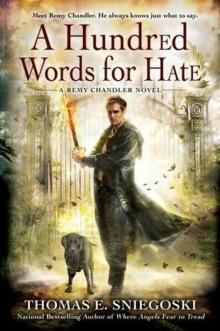 A Hundred Words for Hate rc-4
A Hundred Words for Hate rc-4 The Fallen
The Fallen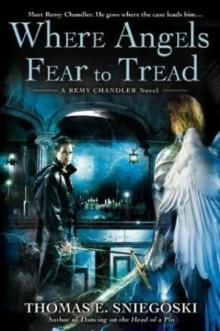 Where Angels Fear to Tread rc-3
Where Angels Fear to Tread rc-3 Armageddon
Armageddon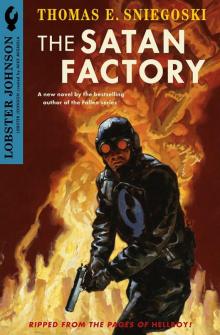 The Satan Factory
The Satan Factory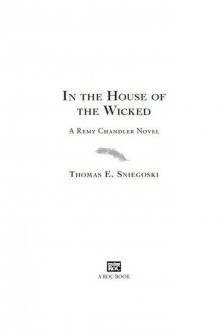 In the House of the Wicked: A Remy Chandler Novel
In the House of the Wicked: A Remy Chandler Novel A Hundred Words for Hate
A Hundred Words for Hate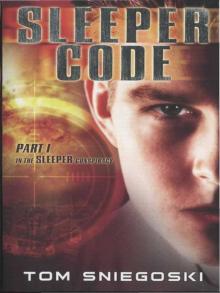 Sleeper Code
Sleeper Code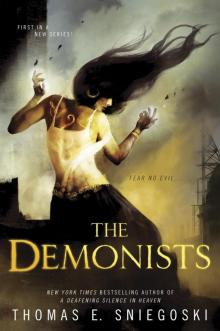 The Demonists
The Demonists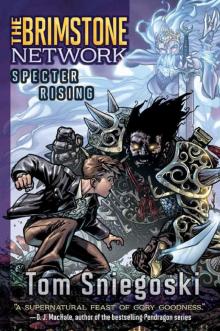 Specter Rising (Brimstone Network Trilogy)
Specter Rising (Brimstone Network Trilogy)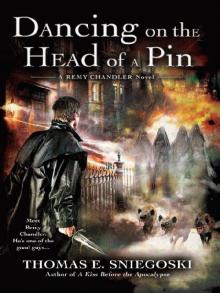 Dancing on the Head of a Pin
Dancing on the Head of a Pin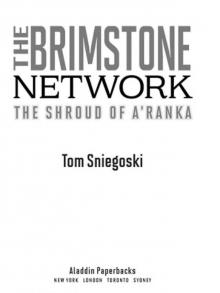 The Shroud of A'Ranka (Brimstone Network Trilogy)
The Shroud of A'Ranka (Brimstone Network Trilogy)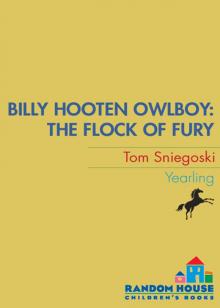 The Flock of Fury
The Flock of Fury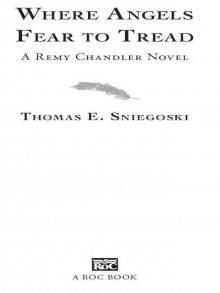 Where Angels Fear to Tread
Where Angels Fear to Tread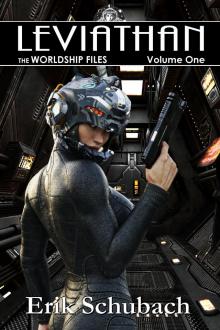 Leviathan
Leviathan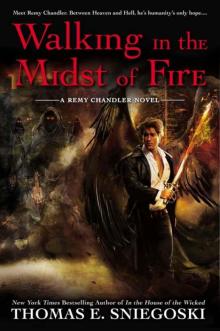 Walking In the Midst of Fire: A Remy Chandler Novel
Walking In the Midst of Fire: A Remy Chandler Novel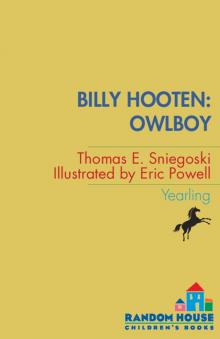 Billy Hooten
Billy Hooten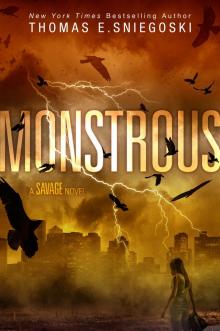 Monstrous
Monstrous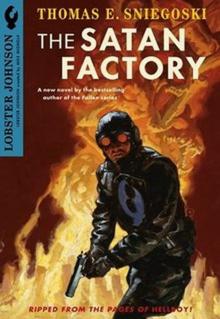 Lobster Johnson: The Satan Factory
Lobster Johnson: The Satan Factory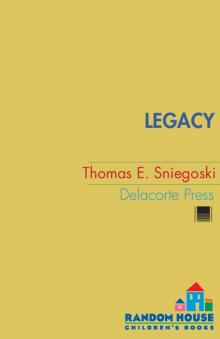 Legacy
Legacy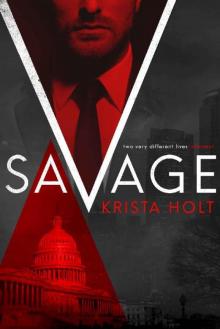 Savage
Savage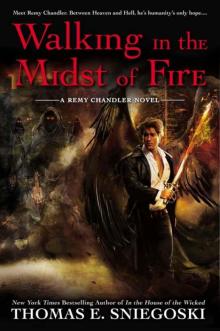 Walking In the Midst of Fire rc-6
Walking In the Midst of Fire rc-6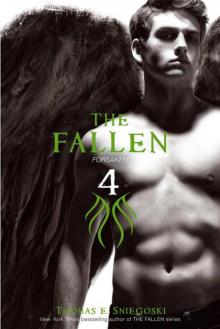 The Fallen 4
The Fallen 4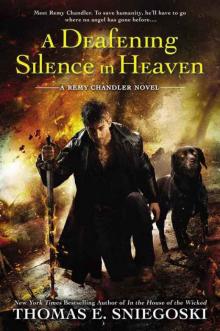 A Deafening Silence In Heaven
A Deafening Silence In Heaven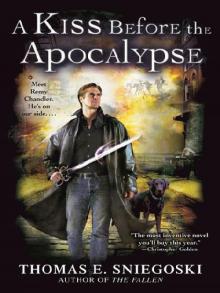 A Kiss Before the Apocalypse
A Kiss Before the Apocalypse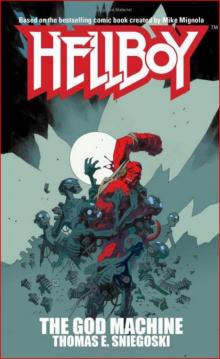 The God Machine
The God Machine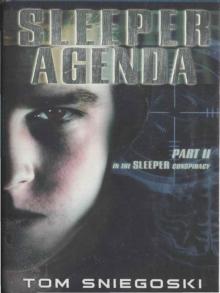 Sleeper Agenda
Sleeper Agenda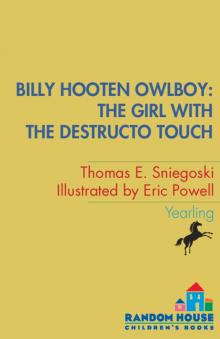 The Girl with the Destructo Touch
The Girl with the Destructo Touch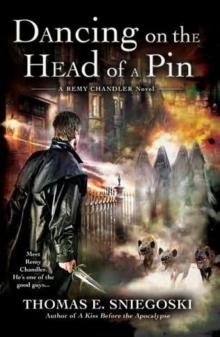 Dancing On the Head of a Pin rc-2
Dancing On the Head of a Pin rc-2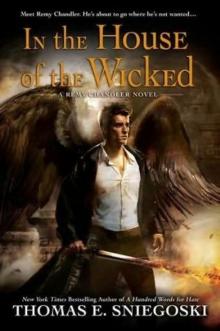 In the House of the Wicked rc-5
In the House of the Wicked rc-5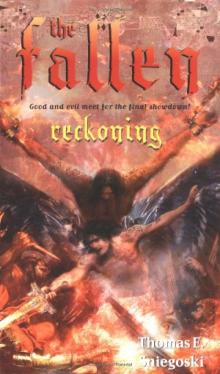 Reckoning f-4
Reckoning f-4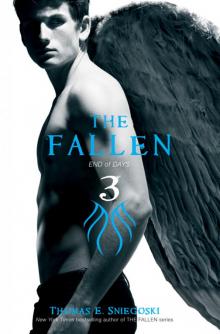 The Fallen 3
The Fallen 3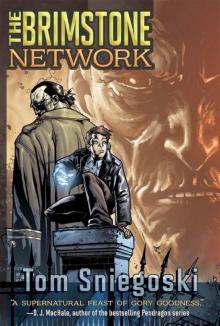 The Brimstone Network (Brimstone Network Trilogy)
The Brimstone Network (Brimstone Network Trilogy)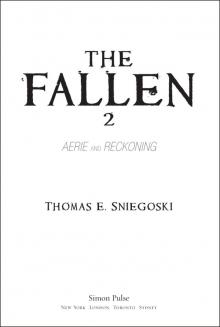 The Fallen 2
The Fallen 2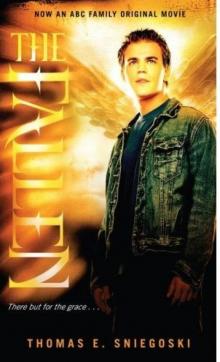 The Fallen f-1
The Fallen f-1